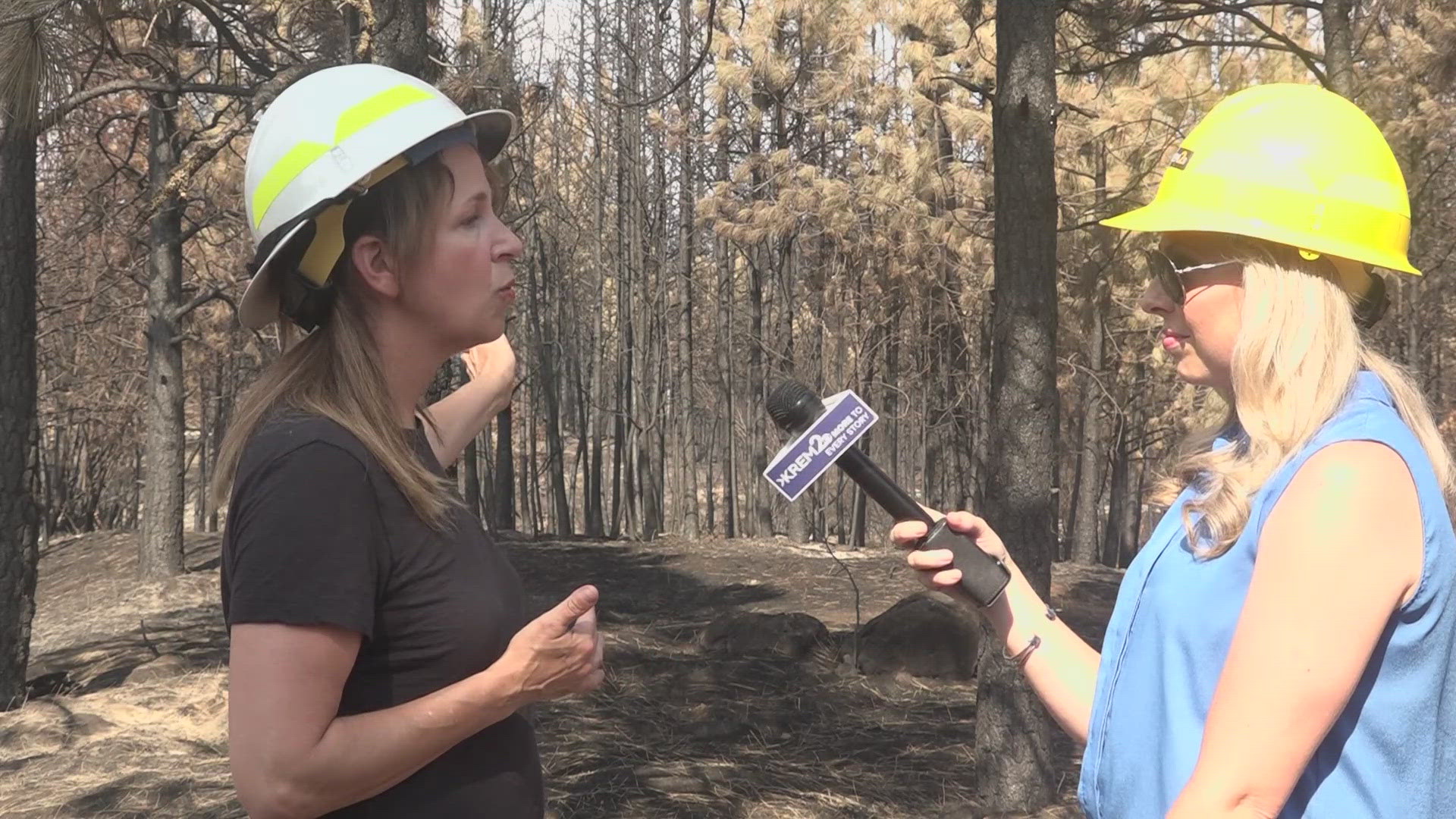SPOKANE, Wash. — The race for Public Lands Commissioner will come down to Dave Upthegrove and Jaime Herrera Beutler, and whoever wins this race will take the seat of current commissioner Hilary Franz.
KREM 2's Whitney Ward recently sat down with the outgoing lands commissioner to look back on her eight years in office and what she believes is the future of the department, especially in Eastern Washington.
Whitney Ward (WW): I remember when we spoke back when you were newly elected, and you had just started in 2017 you had a lot of really lofty goals for increasing response times, for really pre-positioning all the aircraft, to increase our air support, and then, of course, reducing fuel loads down on the ground. How do you think you've done?
Hilary Franz (HZ): Well, I'm first really, really happy. I mean, we've made huge progress. And it's not just in statement. We can actually show it in numbers. I mean, when I first came [to] the agency in 2017, our agency's brand was by the people in Central and Eastern Washington. Was called DNR, "Do not respond." " Do not resuscitate." So what I'm proud to say is now first, we have passed the largest investment in wildfire response in State's history, with $500 million for eight years. That has enabled us to invest in securing more ground resources. And the last two years, even while we've had more fires, we've kept 95% of our fires below 10 acres. And this year, you're going to see, based on how we are leading in the fire, that it is working.
WW: So you're getting ready to leave office. What is it going to take then to keep the momentum going at DNR?
HF: We developed in eight months, my first eight months, a forest health plan that says we can't just run from one fire next. We have to be proactive and actually restore the health of our force so they can prevent these fires in the first place, or slow them down, or reduce their catastrophic nature. And the great news is we are seven years in, and we've treated 800,000 acres on federal, state, tribal and private land. And that work has to continue.
WW: What do you hope for the agency, as you prepare to leave, someone else will come in as their leader? What is your advice to them?
HF: I think that is the biggest piece of advice, listen, learn, and then lead, show humility. Nobody elected me because they knew I was a great fire chief. I knew nothing about fires, but I had a commitment to helping take care of the people [and] the state and make sure I was taking care of our firefighters.
WW: You talked about your time spent learning about wildfires, learning about how to prevent them. What else have you learned about the people who live here in Central and Eastern Washington, who for years were saying, No, this is a big deal, and no one's listening to us? And now things have changed, and it feels like people are starting to listen.
HF: So first they were right. I'll be honest, they were right. And people say like, nobody's listening. And sadly, it didn't change until the smoke. You know, from Seattle to Spokane, we had the worst air quality in the world. And all of a sudden, people said, Hillary, what are we gonna do? We gotta fix this. And I'm like, now you're waking up. This is what Eastern and Central Washington has had for a decade. And we shouldn't have to wait that long. We are one Washington. We are one people. It's not just one part of our state that needs those resources. Every corner of our state needs those resources.

